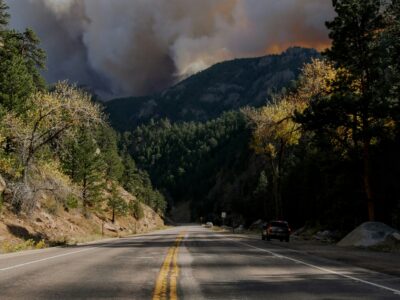Is California Fracking Regulation Out of Focus?
 I’ve long been skeptical of the push that some on the left have made to ban hydraulic fracturing of natural gas. From an environmental perspective, I’d much rather have a natural gas-based fuel mix than one based on coal, and in any event, if there is that much money in the ground, people are going to go get it unless you can really show significant environmental damage (on which the jury is still out with fracking).
I’ve long been skeptical of the push that some on the left have made to ban hydraulic fracturing of natural gas. From an environmental perspective, I’d much rather have a natural gas-based fuel mix than one based on coal, and in any event, if there is that much money in the ground, people are going to go get it unless you can really show significant environmental damage (on which the jury is still out with fracking).
But that hardly implies anything goes: the central task is to get the regulatory framework right — a task that so far no one seems to have achieved. Now California State Senator Fran Pavley, the author of AB 32 (California’s landmark climate change legislation) has put her toe in the water by introducing SB 4, establishing a system for fracking regulation.
The Bill is pretty much an empty shell at this point: essentially it tells the Division of Oil, Gas, and Geothermal Resources (DOGGR) in the Department of Conservation to write some regulations, in consultation with the Air Resources Board (CARB), the State Water Resources Board, and the Department of Toxic Substances Control. That seems to be something like AB 32, which basically told CARB, “Go write some regulations for us.”
But I’m not sure that will work with fracking, because the environmental considerations transcend various subject matters. Right now, SB 5 seems most focused on perceived dangers to groundwater, which is why it requires notifications to regional water quality control boards as well as disclosure of hydraulic fracturing fluid (with appropriate trade secret exemptions).
To my mind, however, two other environmental dangers are paramount (or at least equal): 1) the danger of methane leakage; and 2) the possibility that natural gas production will displace not coal but renewables. If methane gets released from fracking, then all of the emissions benefits of natural gas will go up in flames (so to speak). Ditto with renewable displacement. Putting DOGGR in charge of this does not indicate attention to these issues. Now, of course, CARB will be able to consult, but at least this stage the final authority seems to rest with DOGGR. And it is not clear to me that the displacement issue can be handled at the state level, because not very much of California’s energy mix currently comes from coal. That’s why at least at this stage, it seems to me that federal action will be necessary.
Today, the Senate’s Natural Resources Committee held a joint hearing with the Environmental Quality Committee on SB 4, although no reports have emerged yet. But in order to get an effective bill, the Legislature may have to somewhat adjust its focus.
Reader Comments
2 Replies to “Is California Fracking Regulation Out of Focus?”
Comments are closed.






A recent article in the NY Times makes it sound like the frack-able shale formations in California are richer in oil than in natural gas:
http://www.nytimes.com/2013/02/04/us/vast-oil-reserve-may-now-be-within-reach-and-battle-heats-up.html?pagewanted=all
Do the methane-leakage concerns that you have about natural gas fracking also apply to oil extraction?
If fracking in California is about oil extraction, then the concerns about renewable displacement don’t apply.
However, in the same way that natural gas extraction may be environmentally preferable because it displaces coal use, could one argue that extracting sweet crude in California is justifiable because it’s less bad than Alberta tar sands or deepwater drilling in the Arctic?
I’m not saying I buy this argument — the idea of “environmentally friendly crude” reminds me of the Onion piece about efforts to green the Iraq war (http://youtu.be/Mvz_xzaMvCQ) — but I’m wondering if there’s a serious argument that fracking displaces other, riskier/dirtier forms of extraction.
A recent article in the NY Times makes it sound like the frack-able shale formations in California are richer in oil than in natural gas:
http://www.nytimes.com/2013/02/04/us/vast-oil-reserve-may-now-be-within-reach-and-battle-heats-up.html?pagewanted=all
Do the methane-leakage concerns that you have about natural gas fracking also apply to oil extraction?
If fracking in California is about oil extraction, then the concerns about renewable displacement don’t apply.
However, in the same way that natural gas extraction may be environmentally preferable because it displaces coal use, could one argue that extracting sweet crude in California is justifiable because it’s less bad than Alberta tar sands or deepwater drilling in the Arctic?
I’m not saying I buy this argument — the idea of “environmentally friendly crude” reminds me of the Onion piece about efforts to green the Iraq war (http://youtu.be/Mvz_xzaMvCQ) — but I’m wondering if there’s a serious argument that fracking displaces other, riskier/dirtier forms of extraction.